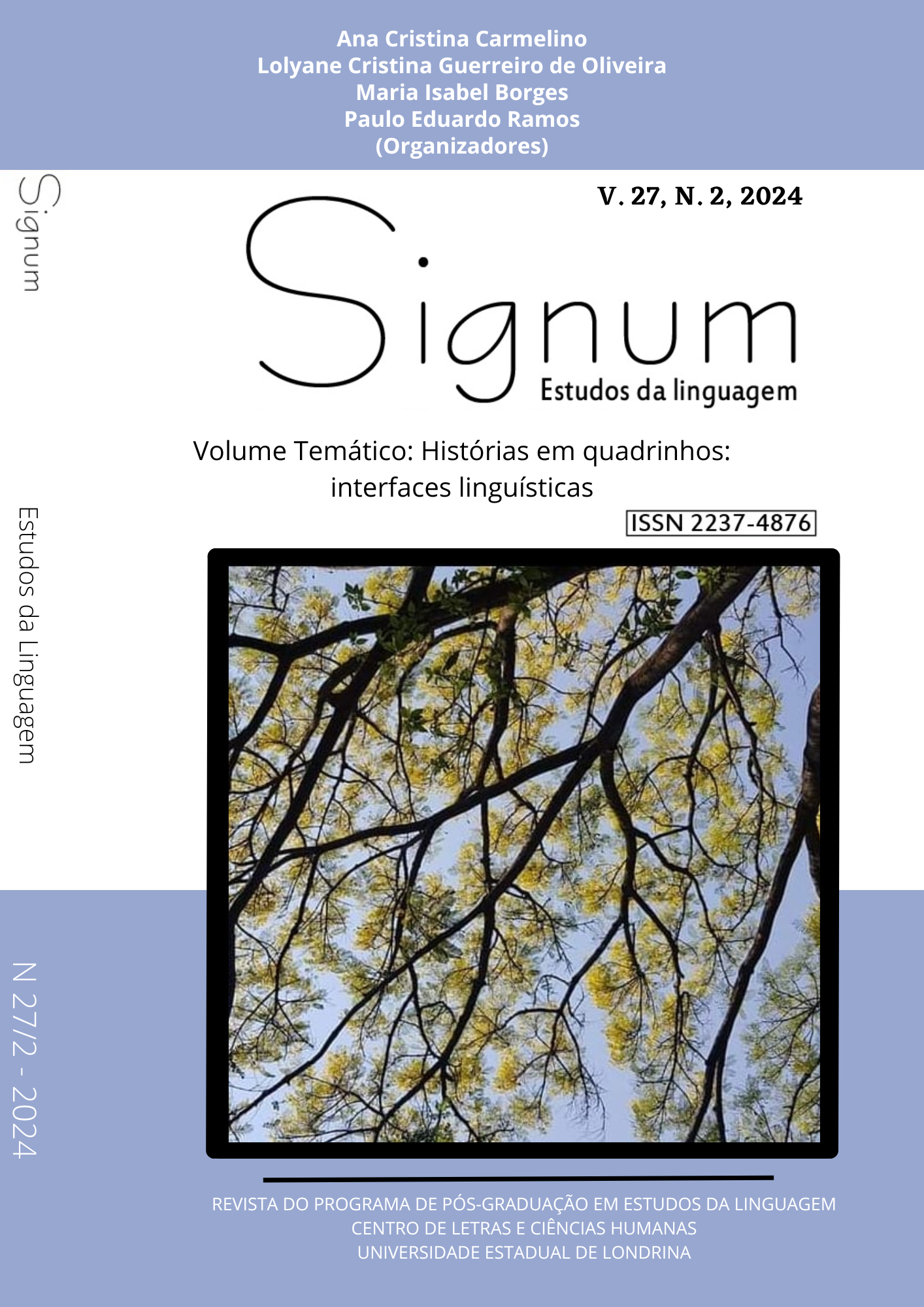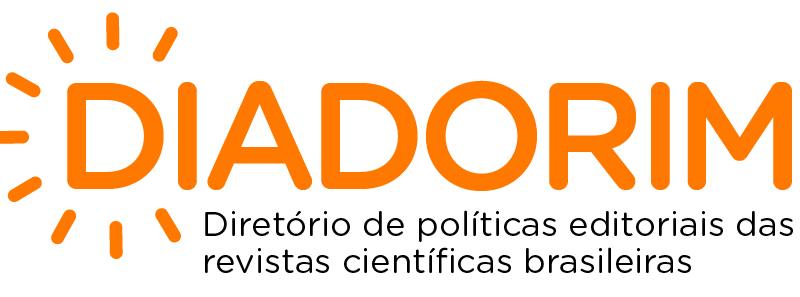Afrofuturism in the sequential adaptation of Kindred (2017)
DOI:
https://doi.org/10.5433/2237-4876.2024v27n2p14-26Keywords:
Afrofuturism, Comics, Kindred (2017)Abstract
The sequential adaptation Kindred (2017) narrates the experiences of the protagonist, Dana, facing slavery and racism, during her various travels through time in 19th century Maryland, in the United States of America. This comic book is an adaptation of the eponymous Afrofuturistic novel by American writer Octavia E. Butler from 1979, by cartoonists Damian Duffy and John Jennings. Through intersectional representations between gender, power, and race, they more vividly illustrate the violence faced by Dana on an ancient Antebellum plantation. Therefore, the objectives of this research were to identify the main Afrofuturistic elements applied in the adaptation and verify how sequential resources were used both to intensify the reader's experience and to promote a more reliable adaptation (Cartmell, 1999). Through deconstructivist methodology (Derrida, 2010; Evans, 2020; Shaikh, 2022), we identify a profound revisionism concerning the relationships between gender, power, and race. Consequently, this revisionism has been proven in a multitude of sequential representations of historical reinterpretations, reconstructions, and reconciliations. These cartoonists do not suggest forgetting the past but understanding it as an hodiernal entity.
Downloads
References
BLOOMFIELD, David. Reconciliation After Violent Conflict A Handbook. Handbook Series. Holmberg & Holmberg Design AB: Sweden, 2003.
BRAYBOY, B. M. Toward a tribal critical race theory in education. The Urban Review, 37 (5), 425-446, 2006.
BUROCCO, Laura. Afrofuturismo e o devir negro do mundo. Revista Arte e Ensaios, n. 38, julho de 2019. Disponível em: https://revistas.ufrj.br/index.php/ae/article/view/26373/15167 Acesso em: 04 mar. 2024.
CARTMELL, Deborah. Adaptations: From Text to Screen, Screen to Text, London: Routledge, 1999.
DERRIDA, J. Grammatology. London Routledge Press, 2010.
DONALDSON, Eileen. A contested freedom: The fragile future of Octavia Butler's Kindred. In: English Academy Review: Southern African Journal of English Studies, 31:2, 94-107, 2014.
EVANS, C. Strategies of Deconstruction: Derrida and the Myth of the Voice. USA: University of Minnesota Press, 2020.
FIELDER, T. Infinitum: An Afrofuturist Tale. Amistad: New York, 2021.
FOLKE, C., S. R. Carpenter, B. Walker, M. Scheffer, T. Chapin, and J. Rockström. 2010. Resilience Thinking: Integrating Resilience, Adaptability and Transformability. Ecology and Society 15 (4). Disponível em <http://www.ecologyandsociety.org/vol15/iss4/art20/>. Acessado em 16/01/2024.
FOUCAULT, M. A ordem do discurso. Universidade Federal de Goiás. Goiânia, 2004.
FREUD, S. O estranho. In S. Freud. Obras psicológicas completas de Sigmund Freud (J. Salomão, Trad.). Rio de Janeiro, RJ: Imago. (Obra originalmente publicada em 1919), 2020.
GODDARD, STACEY. Embedded Revisionism: Networks, Institutions, and Challenges to World Order. In: International Organization, 72 (4): 763-97, 2018.
HAWKING, Stephen. Uma Breve História do Tempo. Rio de Janeiro: Editora Intrínseca, 2015.
HOFSTEDE, G. Culture and Organizations: Software and the Mind. New York: McGraw-Hill Companies, 2007.
JEMISIN, N. K. Far Sector. DC Comics: New York, 2021.
JENNINGS, J.; DUFFY, D. Kindred: A Graphic Novel Adaptation. ‎ Abrams Comicarts, 2017.
MCGREGOR, D; BUCKLER, R; GRAHAM, B; LEE, S. Black Panther. Penguin Classics Marvel Collection: London, 2016.
MCNEESE, Tim. The Civil Rights Movement; Striving for Justice. Infobase Publishing, 2008.
SAID, E. Orientalism. New York: Vintage Books, 2010.
SCOTT, Astrada. Home and Dwelling: Re-Examining Race and Identity Through Octavia Butler's Kindred and Paul Beatty's The Sellout In: Journal of French and Francophone Philosophy Revue de la philosophie française et de langue française. Vol. XXV, N. 1, 2017.
SHAIKH, Hadi. Structuralism and Post-Structuralism. Philadelphia. University of Pennsylvania Press, 2022.
SIMMEL, G. Conflict and the Web of Group Affiliations. Trad. Kurt H. Wolff and Reinhard Bendix. New York: Simon and Schuster, 2010.
SUMMERS, Mark Wahlgren. The Ordeal of the Reunion: A New History of Reconstruction. Chapel Hill: University of North Carolina Press, 2015.
TEGMARK, M. Our Mathematical Universe: My Quest for the Ultimate Nature of Reality. Random House, New York, London, 2014.
THOMAS, C. D. Inheritors of the Earth. How Nature Is Thriving in an Age of Extinction. London: Allen Lane, 2017.
TUCKER, Aviezer. Historiographic Revision and Revisionism. Budapest: Central European University Press, 2008.
TYRRELL, Ian R. Historians in Public: The Practice of American History, 1890-1970. Chicago: U of Chicago P, 2005.
YOUNG, Iris M., in Global Challenges: War, Self-Determination and Responsibility for Global Justice. Responsibility, Social Connection and Global Labour Justice, Cambridge, Polity :160-186, 2007.
WIGGS, Kimber L. "The Trouble: Family, Genre, and Hybridity in Octavia Butler's Kindred." In: Mosaic: an interdisciplinary critical journal. Vol. 54 no. 1, p. 129-145, 2021.
WINDISCH, S., SIMI, P., BLEE, K., and DEMICHELE, M. Understanding the Micro- Situational Dynamics of White Supremacist Violence in the United States. Routledge: New York, 2018.
Downloads
Published
How to Cite
Issue
Section
License
Copyright (c) 2024 Carlos Eduardo de Araujo Placido, Dr. Nataniel dos Santos Gomes

This work is licensed under a Creative Commons Attribution-NonCommercial-NoDerivatives 4.0 International License.
This journal reserves the right to make, in the originals, normative, orthographic and grammatical modifications in order to maintain the standard language and the credibility of the publication. It will respect, however, the authors' style of writing. Modifications, corrections and suggestions of conceptual order will be forwarded to the authors, if necessary. In these cases, the papers, once appropriate, should be submitted to a new appreciation. The final examinations will not be forwarded to the authors. Works published become property of Signum, being its total or partial reprint subject to an explicit authorization of the journal. In all subsequent quotes the original source of publication should be mentioned, in case, in Photographic Discourse. Opinions emitted by the authors are their exclusive responsibility.
















